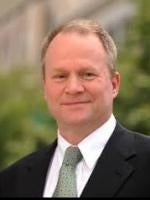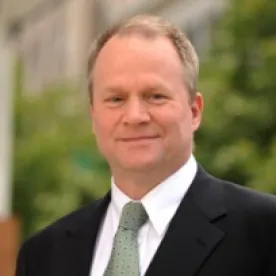On July 2, 2013, Gov. Rick Snyder signed SB 163 (which became Public Act 98 of 2013), ending a five-year struggle between Michigan's Department of Environmental Quality and the United States Environmental Protection Agency. In 2008, U.S. EPA completed an audit of the Michigan wetland program to determine its consistency with the federal Clean Water Act wetland program. Consistency is required in order for U.S. EPA to delegate authority over the federal wetland program to a state. Only Michigan and New Jersey currently enjoy such authority which in most cases allows one-stop shopping for property owners that need wetland permits for proposed uses in wetlands. U.S. EPA's audit found Michigan's wetland statute was not as strict as the federal statute in three main areas: agricultural uses in wetlands; construction of utility transmission lines and pipelines in wetlands; and county drain activities within wetlands.
At least partly in response to the EPA audit, then-Governor Granholm proposed that Michigan repeal its wetland statute and return the federal program to U.S. EPA. While the Governor's position was more likely either a cost-cutting proposal or a political maneuver to obtain more funding for the DEQ, it put the delegated authority issue in the spotlight. A consensus of a broad coalition of stakeholders weighed in in support of preserving Michigan's wetland statute as well as the delegated authority over the federal program. This resulted in the Governor backing down from her proposal.
Next, the Michigan legislature amended Michigan's wetland statute (Part 303 of the Natural Resources and Environmental Protection Act, MCL 324.30301 et seq.) to establish the Wetland Advisory Council. The Council was charged with analyzing options available in light of the EPA audit. The Council was comprised of 20 representatives of stakeholders that have interests in the wetland process. These included representatives of DEQ, U.S. EPA, the Department of Agriculture, the Department of Natural Resources, county drain commissioners, gas and electric utilities, realtors, local units of government, wetland professionals, conservation organizations, home builders, farm organizations, water shed organizations, businesses and the general public.
On August 15, 2012, the Council issued its final report. The report recommended, among other things, that the Michigan legislature amend Part 303 to make it more consistent with the Clean Water Act wetland provisions.
The DEQ spearheaded efforts following the Council's final report to bring about the necessary legislative changes. It helped draft what became HB 5897, which was introduced during the lame duck session of 2012. The Michigan Farm Bureau helped draft a substitute bill that was also introduced during the lame duck session. The bill never left committee and thus died at the end of the term.
In 2013, the DEQ hosted multiple meetings of stakeholder representatives to work out a compromise between its proposed amendments and those favored by the Michigan Farm Bureau. The DEQ assisted in the drafting of what became SB 163 which also became the center point of discussions during the stakeholder meetings. These meetings led to several revisions to the bill, the final version of which was generally approved by most of the stakeholders. Farming interests largely preferred the Michigan Farm Bureau's approach to the agricultural provisions (see related article).
While several important exemptions were restricted or eliminated in Part 303, the consensus of the stakeholders and ultimately of the Legislature and the Governor was that preservation of the delegated authority of the federal wetland program was more important than the preservation of such exemptions. P.A. 98 essentially brings Part 303 in line with the Clean Water Act's wetland provisions, and should lead to either greater preservation of wetlands and/or more wetland permitting efforts (and disputes).




 />i
/>i
